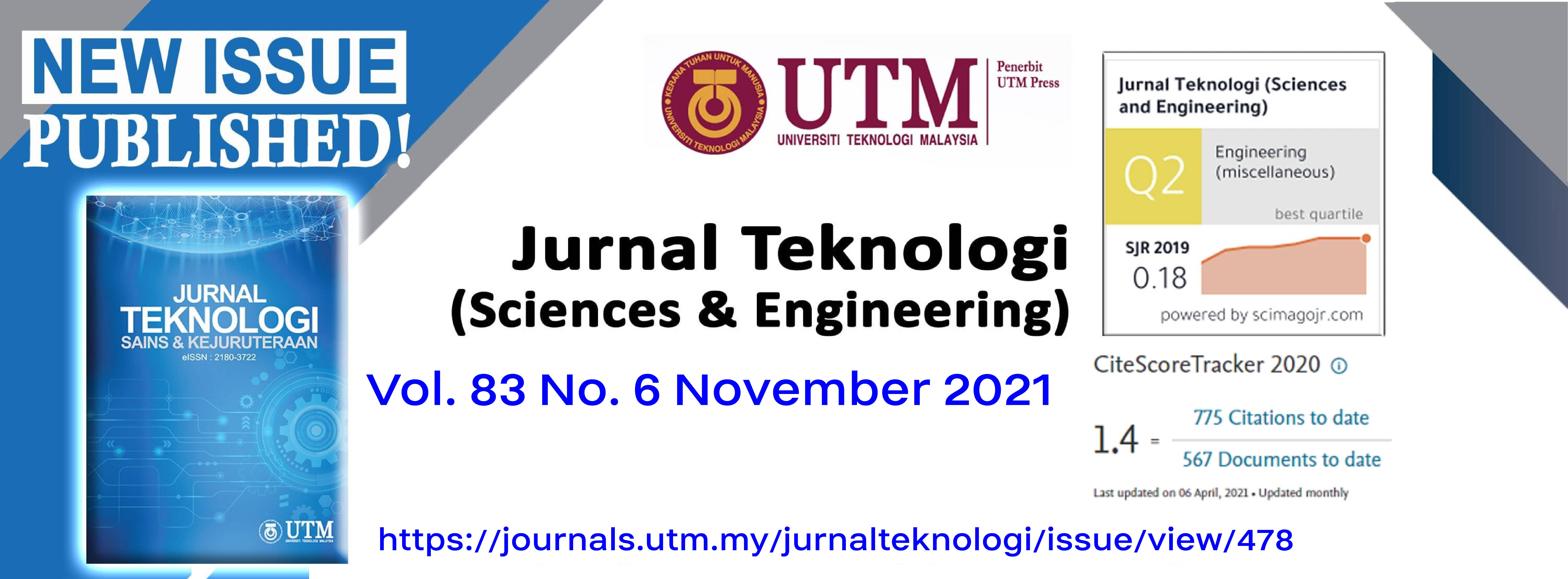EXPLORATORY SPATIAL DATA ANALYSIS (ESDA) ON COVID-19 CASES IN MALAYSIA
DOI:
https://doi.org/10.11113/jurnalteknologi.v83.17106Keywords:
MCO, RMCO, exploratory spatial data analysis, Moran's index, spatial autocorrelation, COVID-19Abstract
The Malaysian government implemented The Movement Control Order (MCO) on 18 March 2020 to control the spread of the COVID-19 outbreak. However, the third wave that started in September 2020 during the Recovery Movement Control Order (RMCO) phase saw a continuous increase in the number of cases. In this study, the exploratory spatial data analysis (ESDA) was used to analyse the existence of COVID-19 spatial clusters. Moran's index was used to map the spatial autocorrelation (cluster) to showcase the spreading patterns of the COVID-19 pandemic in Malaysia. The study results indicated significant changes in the COVID-19 hotspots over time. At the beginning of 2020, the state of Selangor and Sarawak were the first locality to become a significant COVID-19 hotspot. Furthermore, this research showed all affected areas during the study period. Overall, a non-random distribution of COVID-19 occurrences was detected, thus suggesting a positive spatial autocorrelation. Many parties are affected by the COVID-19 pandemic, especially those involved in healthcare provision, financial assistance allocation, and law enforcement. Other sectors such as the economy, education, and religion are also affected. Therefore, the findings from this study will provide useful information to all the related governmental and private agencies, as well as policymakers and researchers.
Downloads
Published
Issue
Section
License
Copyright of articles that appear in Jurnal Teknologi belongs exclusively to Penerbit Universiti Teknologi Malaysia (Penerbit UTM Press). This copyright covers the rights to reproduce the article, including reprints, electronic reproductions, or any other reproductions of similar nature.
















